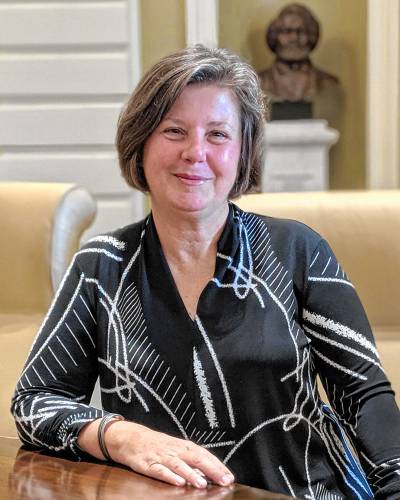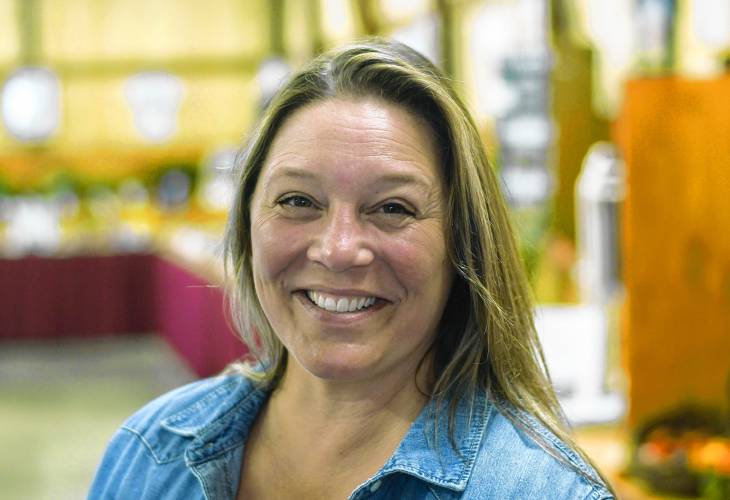Western Mass legislators urge PILOT formula reform
| Published: 05-17-2025 8:58 AM |
BOSTON — State Rep. Natalie Blais and Sen. Jo Comerford are urging the Healey-Driscoll administration to reform the payment in lieu of taxes (PILOT) formula for state-owned land, which they say “shortchanges” rural counties, while rewarding those in urban and suburban areas.
The legislators are requesting the administration consider including language from bills H.3032 and S.1939 in the upcoming environmental bond legislation.
Specifically, Blais and Comerford are asking the PILOT formula be amended to consider the value of the land, rather than how the state-owned land compares to other state-owned land, and create a task force to make recommendations for further amendments, including looking at the “ecosystem services” provided by the parcel of land to address climate change.
Historically, the value of state-owned land depended on each parcel’s development potential, effectively placing higher value on easily accessible and unforested land.
Blais said the effort comes as the western part of the state continues to build momentum to push for more equitable funding when compared to eastern Massachusetts. She added this is a continuation of efforts identified in then-Auditor Suzanne Bump’s 2021 report, which included recommendations to increase funding for infrastructure projects.
With big boosts in Chapter 90 funding coming to Franklin County communities, as well as other funding initiatives, Blais said now is an excellent opportunity to keep moving the process forward.
“We’ve been able to make progress on one of the recommendations in that report, which was to close the funding gap,” Blais said. “I’m hopeful this will be a one-two punch, now that we’ve been able to close the funding gap and we can get this funding change across the finish line.”
Blais and Comerford further pressed their requests in a letter to Gov. Maura Healey and Lt. Gov. Kim Driscoll, as they highlighted that Franklin and Hampshire counties receive two of the lowest per-acre reimbursements in the state, $32 per acre and $61 per acre, respectively.
Article continues after...
Yesterday's Most Read Articles
The averages for Berkshire and Hampden counties are $33 per acre and $59 per acre, respectively. Suffolk County’s average is about $5,504 per acre, according to fiscal year 2024 calculations from the Division of Local Mandates.
“The current formula disadvantages municipalities with slowly increasing or stagnating property values like the ones we represent,” Blais and Comerford wrote. “Under the formula, a municipality’s share of total payments only increases when its property value grows faster than the state average. Otherwise, that municipality’s payment is proportionately reduced.”
Blais said the letter is part of an attempt to “use every vehicle available to us” to get the formula amended. If the environmental bond bill doesn’t include the changes, Blais said they can try to get it passed through amendments, or they can continue to push the independent bills forward.
Warwick likely feels this inequity more than many towns in the state, according to Town Coordinator David Young. Of the approximately 24,103 acres of land in town, the state owns about 11,879 acres, of which 99% is protected land. The legislators estimated the community received about $13 per acre in fiscal year 2024.
Young said the PILOT payments account for “slightly north of $100,000,” and with other revenue sources decreasing, an amendment to the formula could help taxpayers.
“A lot of the tax levy increase that Warwick has seen coming into next year has been loss of other revenues,” Young said. “And that is going to keep on happening.”
Young said the town supports Blais and Comerford’s request, adding that he would like to see the amendment mirror valuations for similar land found in Chapter 61, which creates reduced tax assessments for maintaining forests, or land used for agricultural or recreational purposes.
“Historically, the state paid us at about the level, or slightly more than, Chapter 61 lands that are held in forest recreation. It’s dwindled,” Young said, adding that the governor’s boost to Chapter 90 funding will help the town. “We’ve got a real challenge building roads through nowhere. I do not at all begrudge the fact that we have so much state land, it’s part of what makes Warwick so nice, but there’s fewer of us driving a lot of miles.”
Blais and Comerford’s request comes just weeks after state Auditor Diana DiZoglio and the Division of Local Mandates presented a new report to regional officials in Windsor. The report recommends narrowing PILOT disparities, including setting the minimum amount a municipality can receive per acre.
“Given that our cities and towns rely on property taxes to fund much of our local services and given that land is taken off the tax rolls when it is state-owned,” DiZoglio said in mid-April, “the issue of how towns and cities are reimbursed has a direct impact on how services are delivered for local residents.”
The full letter to the Healey-Driscoll administration can be found at bit.ly/4mh8EIY.
Chris Larabee can be reached at clarabee@recorder.com.








 Greenfield rally honors late activist’s legacy, speaks to concerns over Medicaid cuts
Greenfield rally honors late activist’s legacy, speaks to concerns over Medicaid cuts Greenfield’s Rite Aid closing
Greenfield’s Rite Aid closing PHOTOS: Munching on the move at Point 5K fundraiser
PHOTOS: Munching on the move at Point 5K fundraiser ‘Without us, there is no UMass’: Unions representing staff decry bargaining tactics by administration
‘Without us, there is no UMass’: Unions representing staff decry bargaining tactics by administration
